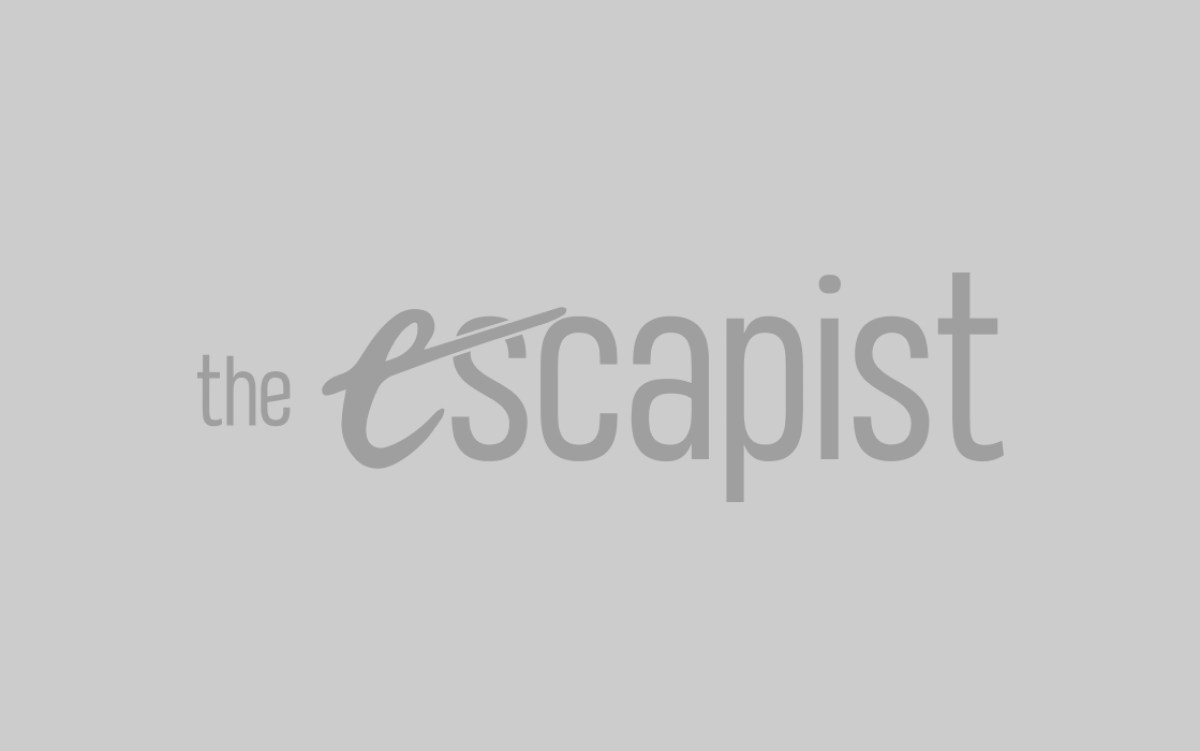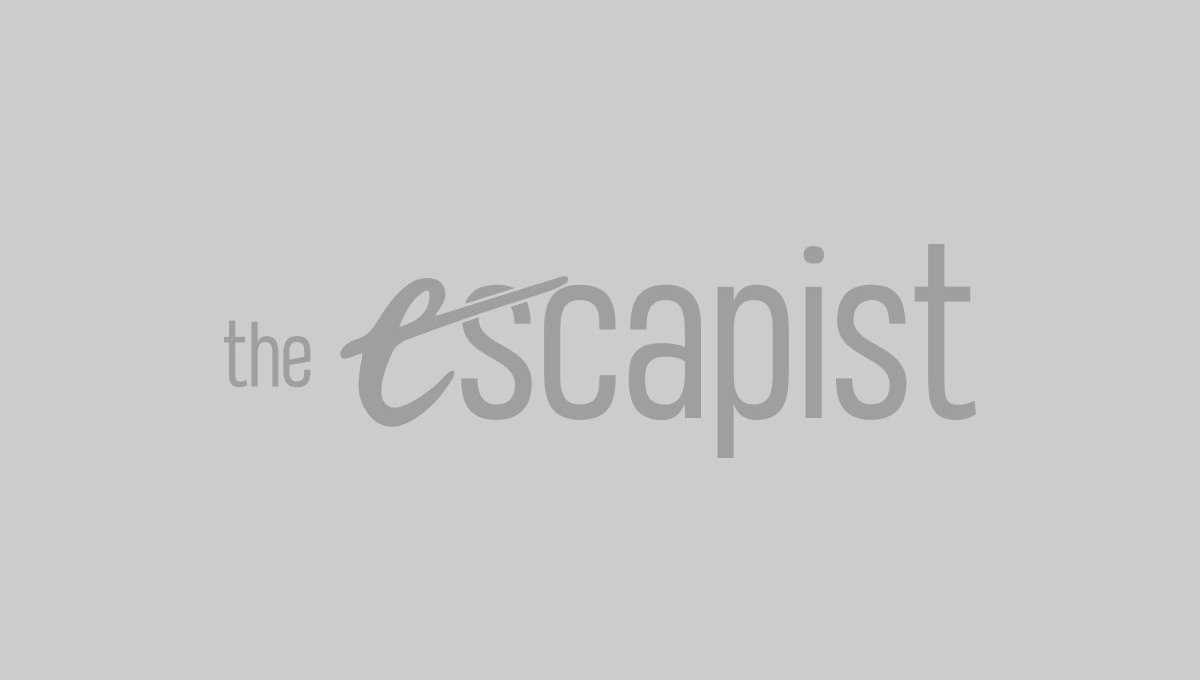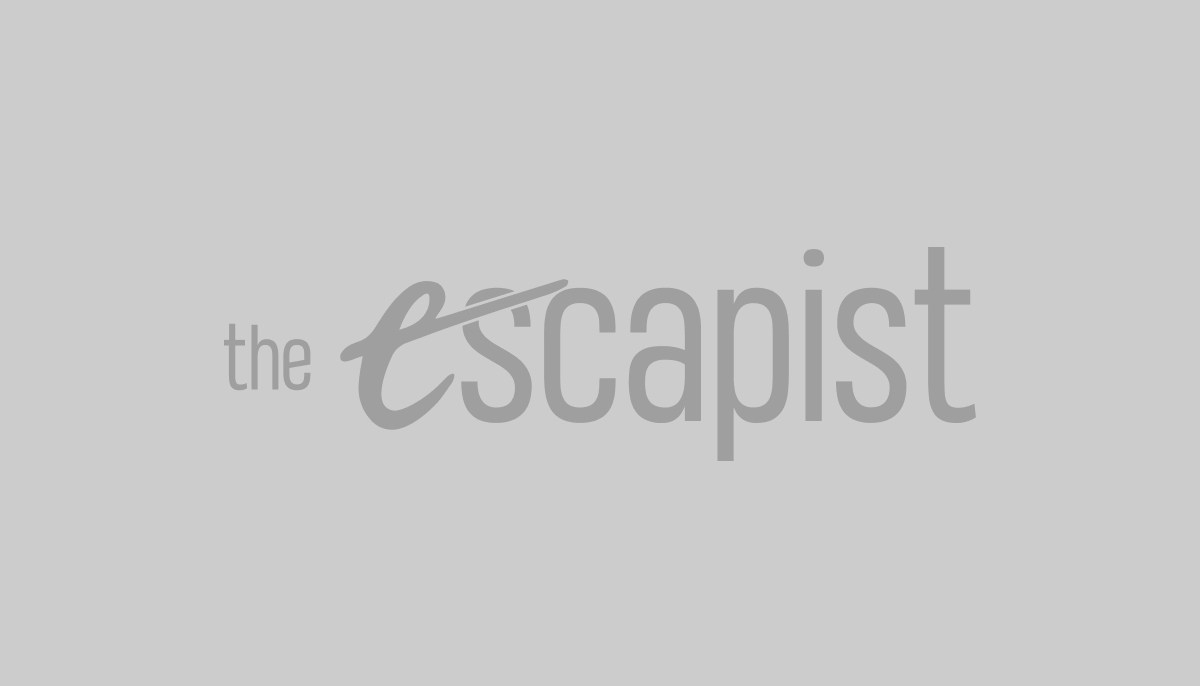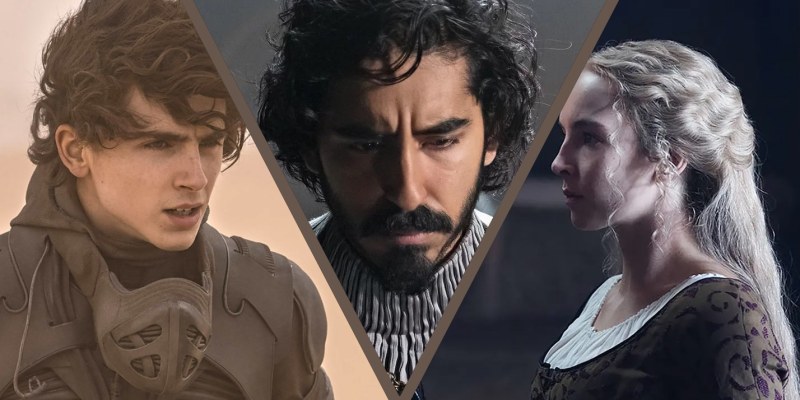Looking at this year’s movies, one would be forgiven for thinking that it’s not easy to be a hero.
The past few months have seen the release of The Green Knight, Dune, and The Last Duel. There is an interesting overlap between the three films, which together compose something of a miniature revival of the old-fashioned epic. All three are recognizable as pseudo-medieval narratives. The Last Duel unfolds in 14th century France. The Green Knight is a story set in the twilight of Arthurian Albion. Dune is set in a distant future that has retreated into something resembling feudalism.
The three films approach their material in different ways. The Last Duel is the most grounded of the three movies, focusing on three accounts of the same events from different perspectives. The Green Knight is hallucinatory and ambiguous, abstract and trippy. Despite its futuristic setting, Dune is perhaps the closest to an old-fashioned studio epic, with its sense of scale and majesty. However, all three share similar themes and preoccupations, just approaching them from different angles.
At their core, these three movies are about what it means to be the hero of one’s own story and what happens when that narrative brushes up against something greater – whether two other competing takes on the same story, the weakness of one’s own character, or the machinations of larger forces that turn the story into a trap. In each of these three films, narratives are not enough to save these characters. In some cases, they might even doom them.
Each of the three films is an adaptation and so is built around the idea of narrative. The Last Duel documents a real-life rape trial. It draws from Eric Jager’s book of the same name, which acknowledged the muddied waters of the historical narrative – as lawyer Jean Le Coq noted, “No one really knew the truth of the matter.” Even today, the facts of the case remain hotly contested and debated among historians.

The production team found that the historical record was particularly incomplete when it came to the victim, Marguerite de Carrouges (Jodie Comer). “(T)hat world of women had to be almost invented and imagined out of whole cloth,” Matt Damon told The New York Times. “The men were very fastidious about taking notes about what they were up to at the time. But nobody was really talking about what was happening with the women, because they didn’t even have personhood.”
Similarly, The Green Knight draws from the classic poem Sir Gawain and the Green Knight, which writer and director David Lowery describes as “one of the greatest texts in medieval history.” Historians have noted the poem’s “irony and ambiguity,” continuing to debate its true meaning. Lowery’s adaptation carries over these ambiguities. Rather than trying to resolve any of these interpretations, the film instead opens itself up to a similar variety of readings.
Dune is adapted from Frank Herbert’s science fiction classic of the same name. It is a novel that has proven difficult to adapt to screen, with David Lynch’s previous attempt resulting in one of the strangest blockbusters ever made. The book has been described as “unfilmable” (or perhaps simply “uncontainable”), posing a challenge for Denis Villeneuve. The book itself is obsessed with narrative, punctuated with quotes from future histories that place the events of the story in a broader context.
So, these three films are all drawn from concrete material – books, poems, real events. However, an implicit ambiguity is baked into the narrative of each film. There is more than just the text itself; there is interpretation and even negative space. All three films reject the narratives that the characters construct for themselves and suggest that reality is much more complicated and chaotic than simple heroic tales.

The first two sections of The Last Duel filter the historical events through the perspective of the two combatants, Sir Jean de Carrouges (Matt Damon) and Jacques Le Gris (Adam Driver). They are titled “the truth according to Jean de Carrouges” and “the truth according to Jacques Le Gris.” A brief prologue focuses on each of the three main characters preparing for the duel, as if to suggest that the pageantry and performance is more important than the actual truth of what happened.
The first two sections of The Last Duel suggest something similar to Rashomon, the idea that everybody is the hero of their own story. De Carrouges sees himself as a noble and forthright man, growing to despise his old friend Le Gris for his social striving and his lack of fidelity. In contrast, Le Gris sees himself as a hardworking man who has never taken anything for granted and who comes to resent de Carrouges for his sense of pride and entitlement. It is all subjective.
However, the third and final chapter deconstructs that argument. The title reads “the truth according to Marguerite de Carrouges,” but the words “according to Marguerite de Carrouges” fade. Only “the truth” remains. Jean de Carrouges and Jacques Le Gris can believe that they are the heroes of their own stories, but that does not erase the reality of the suffering inflicted on Marguerite – both in the attack itself and in the potential consequences of the trial.
As such, The Last Duel is a deconstruction of the narratives that Jean de Carrouges and Jacques Le Gris construct around themselves, arguing that these heroic self-justifications cannot survive contact with reality. For all the arguments about living in a “post-truth” age shaped by “bubbles,” objective truth exists – even when it is squeezed out of historical narratives. Eric Jager has argued that he “never would have embarked on writing (the) book if (he) had not believed Marguerite.”

The Green Knight is perhaps a bit more cynical. Gawain (Dev Patel) is a young man waiting for something to happen to him. His uncle, the King (Sean Harris), urges him, “You tell me a tale of yourself, so that I might know thee.” Gawain confesses, “I have none to tell, King.” When a mysterious Green Knight (Ralph Ineson) arrives and offers a challenge, Gawain sees an opportunity to join the “legends” that populate his uncle’s court.
The Green Knight is in many ways a deconstruction of the hero’s journey. Gawain clearly lacks the courage and the drive for the quest, asking his uncle, “Why are you holding me to this light?” The King replies, “Is it wrong to want greatness for you?” Gawain confesses, “I fear I am not meant for greatness.” He eventually commits to the quest, not out of any innate valor but because that sort of questing is “how brave men become great.”
At one point, Gawain tries to explain himself to a Lord (Joel Edgerton). The Lord seems at once amused and confused by Gawain’s logic. “You’ll do this one thing, you return home a changed man, an honorable man?” he asks. “Just like that?” Gawain simply replies, “Yes.” The irony, of course, is that The Green Knight is structured to present Gawain with a choice. He can either return home as he is or die as a changed man. This heroic narrative is a trap, leading Gawain (probably) to his death.

Dune similarly positions its heroic narrative as a trap. Paul Atreides (Timothée Chalamet) might just be the “Chosen One.” He might be the Kwisatz Haderach to the Bene Gesserit or the Lisan al Gaib to the Fremen. He might just be the messiah, capable of guiding mankind out of the dark ages and into enlightenment. It’s a standard heroic trope. However, Dune brutally subverts the familiar template, daring to ask what happens when a “Chosen One” narrative goes horribly wrong.
Paul is trapped between his own desires and the expectations of a protagonist in this sort of story. When his father Duke Leto (Oscar Isaac) explains that Paul must be the future of House Atreides, Paul asks, “What if I’m not?” Haunted by prophetic visions of war “spreading across the universe like an unquenchable fire,” Paul curses the manipulations that put him at the center of this tale. “You did this to me!” he tells his mother Jessica (Rebecca Ferguson). “Your Bene Gesserit made me a freak!”
Like Gawain, Paul is the victim of the heroic narrative constructed around him. Unlike Gawain, Paul doesn’t even seem to want it. Like Marguerite, Paul’s narrative is imposed by others against his wishes. These are surprisingly ambivalent takes on the traditional idea of the hero’s narrative. Taken as a set, these three films offer an interesting meditation on the most familiar story template. The Last Duel and Dune are both fascinated by who holds the power to set these narratives.
Sometimes it isn’t enough to be the hero of the story; sometimes the story and the author need to be interrogated.
